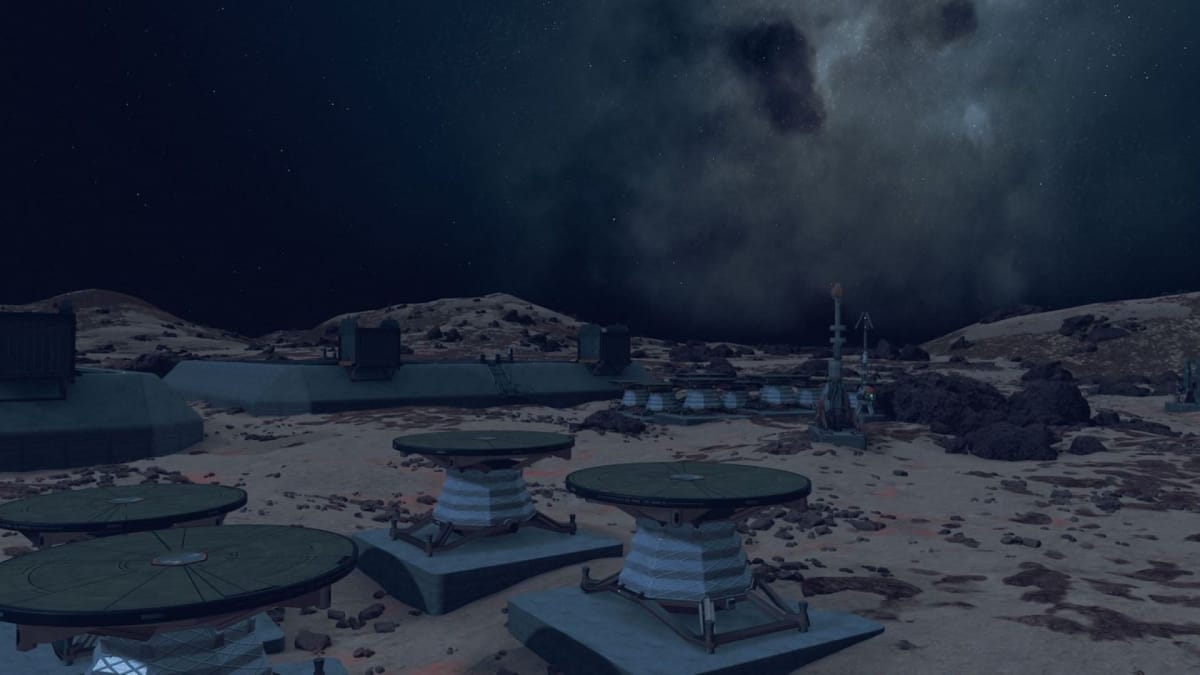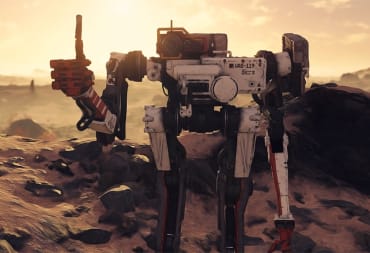Now that Starfield has been released into the hands of millions of adoring fans across the world, it seems that most people would agree that the game has more or less lived up to expectations. Yes, Starfield is just another Bethesda game, but it may very well be their best game so far.
Like most Bethesda games, you truly are given the freedom to explore the universe in whatever way you choose, yet like most Bethesda games, it also has a number of strange design choices. Perhaps the most questionable of these revolve around Starfield's outpost system.
In theory, Starfield's outpost system should be nothing more than an upgrade to Fallout 4's settlement system, albeit on an interstellar scale. In practice, while the scale of the outpost system is certainly an upgrade, the actual implementation has felt like a massive step back in most aspects. To put it bluntly, Starfield's outposts are such a massive hassle to set up that it is almost self-defeating.
From a practical standpoint, outposts are actually a very good way to get resources. You can then use these resources to build outposts on other planets, giving you the chance to create a powerful mining/construction empire that can run passively while doing other things. Outposts can thus be used to get large amounts of money and XP via the mass production of industrial workbench products.
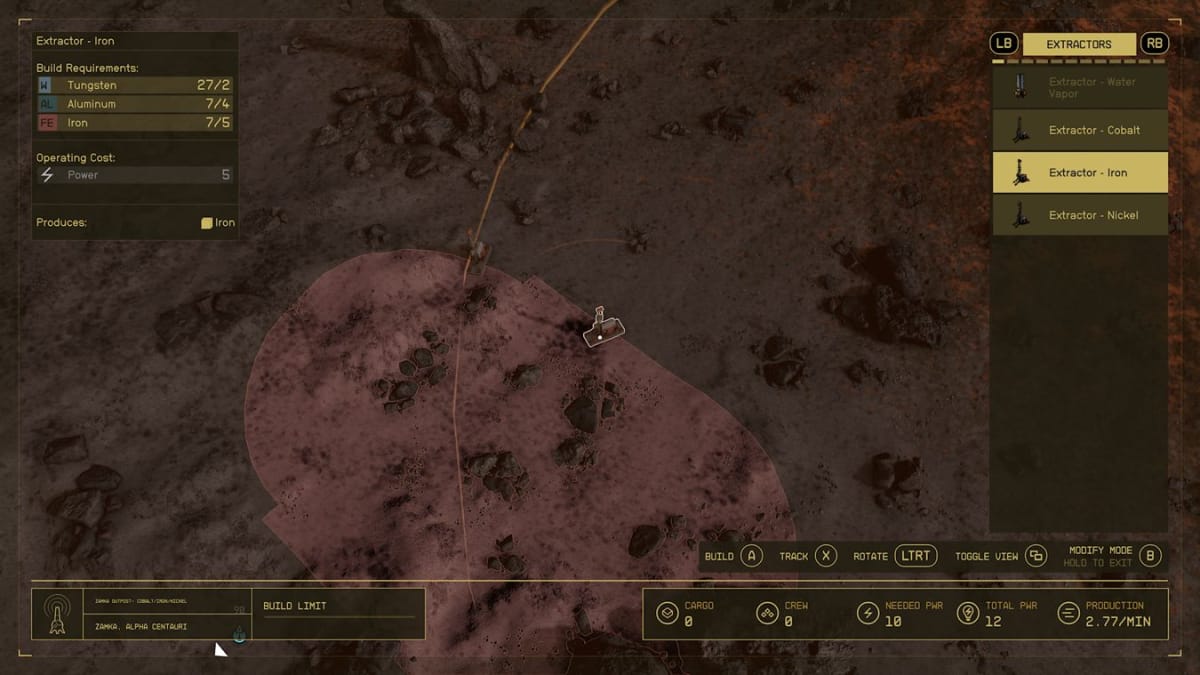
Starfield's Outposts Are Not New-Player Friendly
What the game doesn't tell you is that you need a lot of resources to create the most basic structures. The standard resource extractor for instance requires three different kinds of materials. Unless you wander around a bit or get lucky with your landing sites, you're using almost half of your starting outpost allotment just to create the extractors needed to extract other resources.
Of course, if you know what you're doing then you can find optimal landing sites where three or more resources overlap. Generally, these are areas where two or more resources share a border during a planetary scan. It's an important skill for outpost building, which makes it odd that new players aren't taught this in-game.
If you want to take full advantage of Starfield's outpost system though you're also going to have to spend a lot of skill points. Let's say that you want to create the bare minimum number of outposts to be able to freely create weapon mods. To do so, you'd obviously need to put four points into Weapon Engineering to get access to every weapon mod.
You'd need at least one more skill point in Botany to mass produce organic materials like adhesives. You're probably going to want at least one point in Planetary Habitation as well, seeing as how some rare resources seemingly only spawn on planets with extreme conditions. Sounds fair on paper, except for the fact that you can use those same skill points to be a halfway decent soldier, pilot, and thief instead to get more immediate benefits.
Unless you want to manually haul rocks from one planet to another, you're going to need cargo links as well, which presents its own series of problems. For starters, each cargo link can only connect to one other cargo link. If you want to connect more than two outposts, each outpost is going to need at least two of these massive cargo links taking up valuable building space.
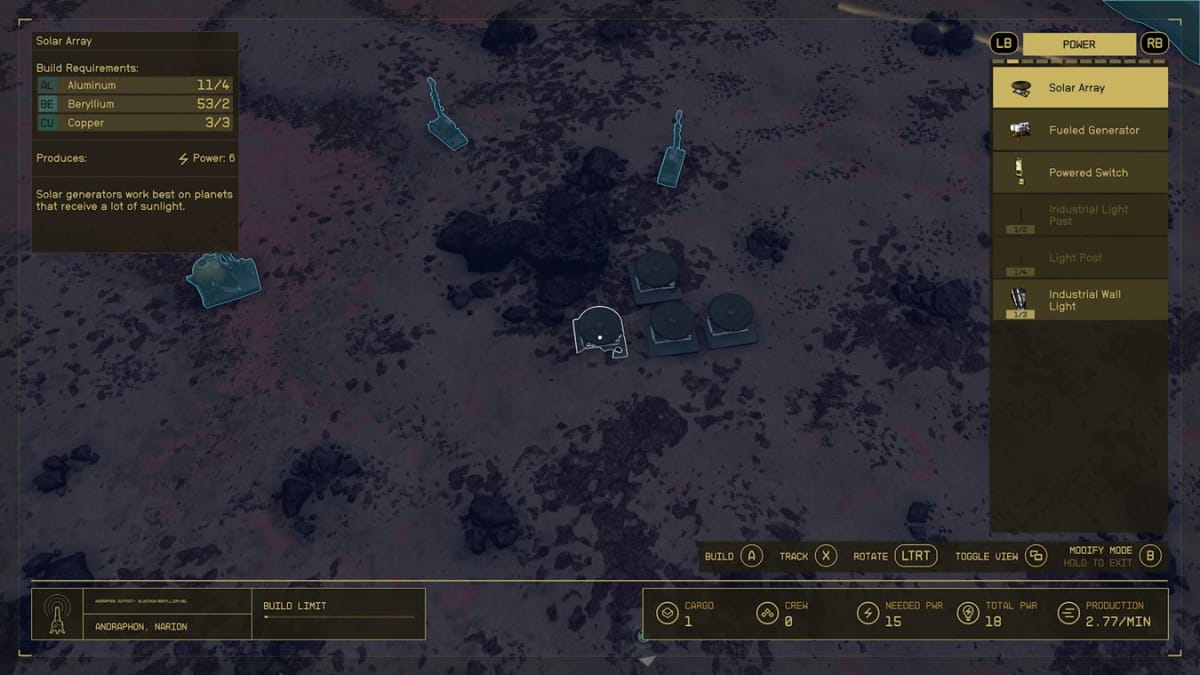
The amount of cargo that can be sent is limited too. Predictably, this is a huge problem for long outpost chains as the game will seemingly randomly choose what to send when the cargo ships run out of space. If you're trying to send all of your resources to a central hub, some of your resources might end up being stuck somewhere along the chain. Or you could simply encounter a possible bug that causes a cargo link to stop working for no apparent reason.
This ties into yet another problem of Starfield's outpost system: inventory space. Each outpost has a finite amount of storage capacity, which presents obvious problems. You can literally fill an outpost with storage crates, but eventually those crates will reach maximum capacity.
This is in stark contrast to Fallout 4's settlement system where setting up supply lines between settlements allowed settlements to instantly and simultaneously share an infinite amount of every single resource.
The most befuddling aspect of Starfield's outpost system is the fact that the underlying mechanics worked well enough in Fallout 4. While there's many potential solutions to making Starfield's outposts more bearable, the most immediate problem lies with the cargo links. Their implementation is outright counterintuitive in almost every possible way.
It goes without saying that new players would almost certainly be turned away from outpost building as a result. Reverting to Fallout 4's supply line system would likely help in making outpost building more bearable. Otherwise, the current system is a massive inconvenience to people who are otherwise trying to engage with a key part of Starfield's exploration gameplay loop.
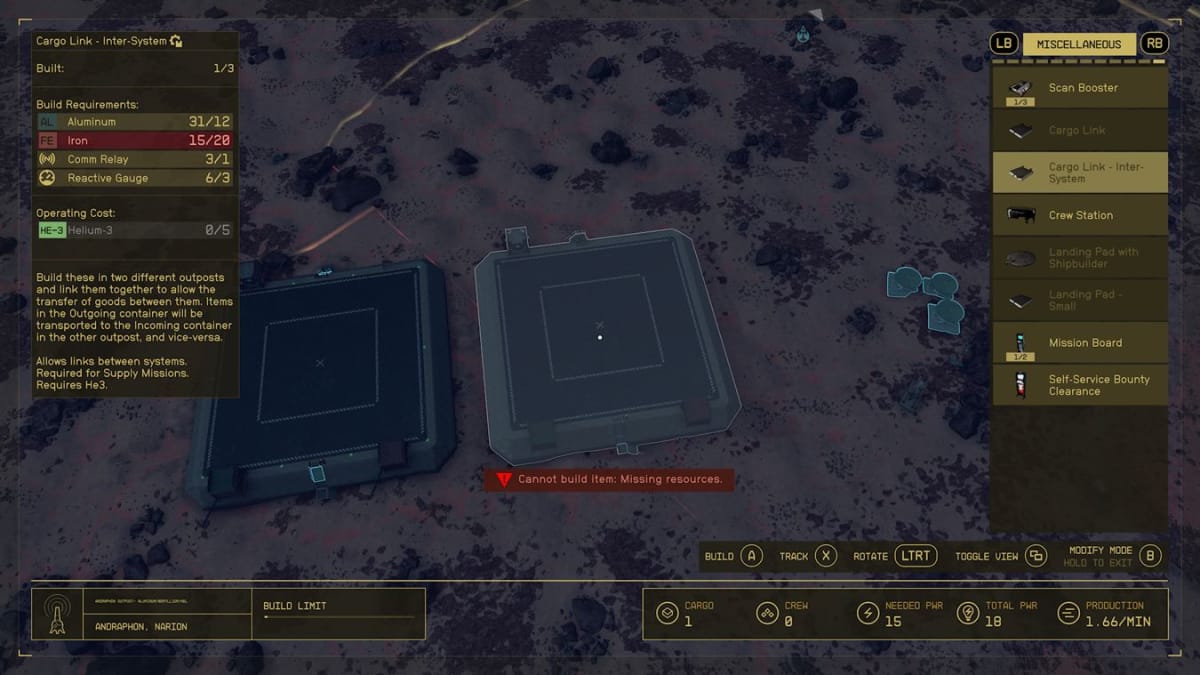
Alternatively, Bethesda could give us more ways to use basic resources to try and artificially balance out what is being sent in cargo links. The ability to craft ammo would likely be the most effective and popular solution if Bethesda were to go in this direction.
This still wouldn't fix the underlying problems behind Starfield's outpost system, though it would at least mask the issue to some degree. After all, everyone needs ammo regardless of playstyle, and if Bethesda decides to implement a survival mode a la Fallout 4, then being able to craft the right kinds of ammo would be very helpful.
Will Starfield's Outposts Have a Future?
Admittedly, Bethesda might've chosen to go with Starfield's current outpost system because it's more "realistic" than sending a random settler across the world to magically share supplies. Regardless, outposts are not particularly well implemented in their current state. New players would be hit by the massive skill point and materials cost on top of the inconsistent behavior of cargo links, assuming that they're not overwhelmed by the learning curve.
Meanwhile, experienced players will probably find it a hassle to manage all the cargo and resource extractor connections, finding it easier to simply buy the resources instead. Finally, anyone who returns to playing Starfield with mods years down the road will likely ignore outposts completely since they're not exactly quick to set up. Fortunately, Bethesda has time to make adjustments, especially if they plan on supporting Starfield with a year of two of DLC.
Have a tip, or want to point out something we missed? Leave a Comment or e-mail us at tips@techraptor.net
